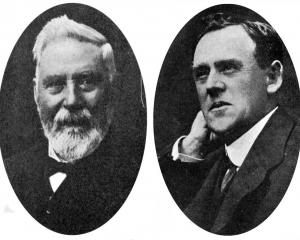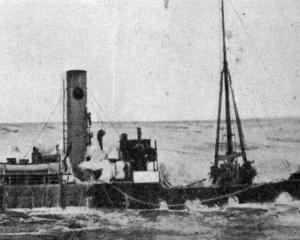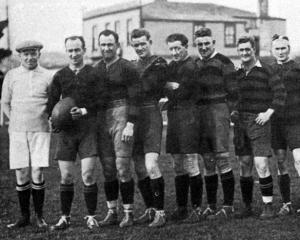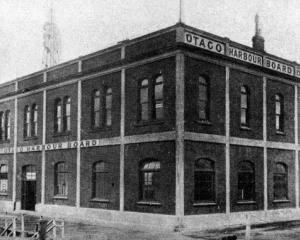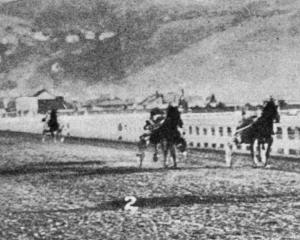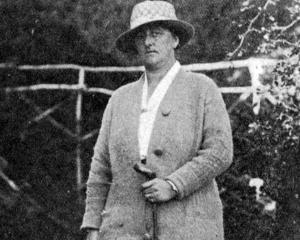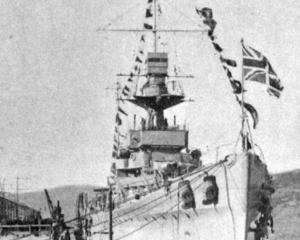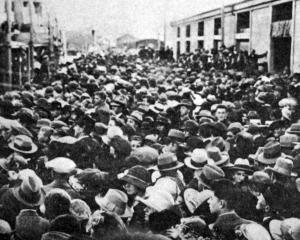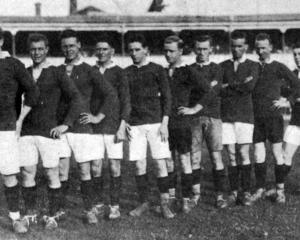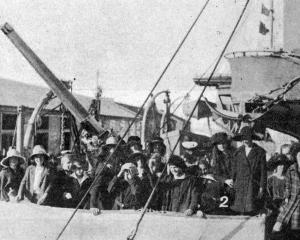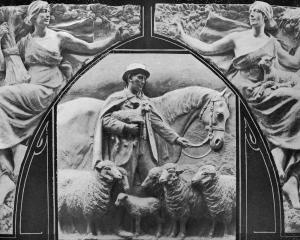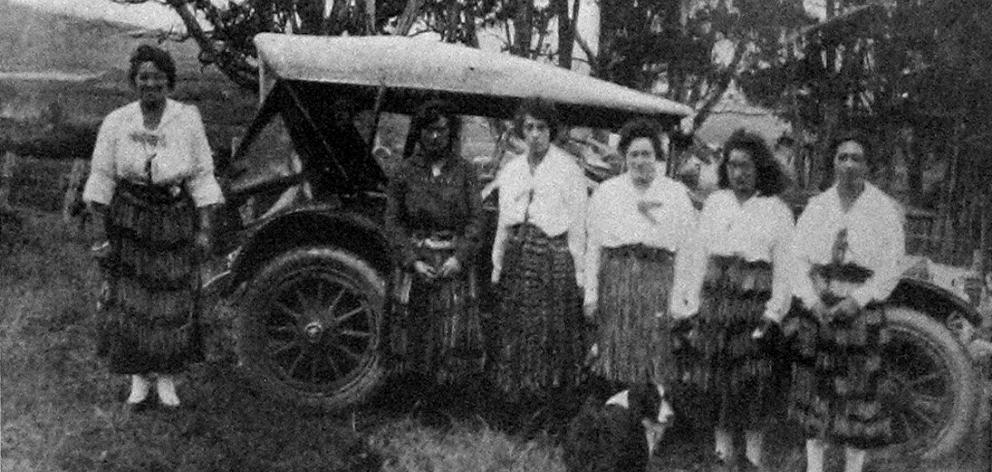
The men were taken out in nine motor cars, arriving at their destination about midday. The weather was excellent, and the hospitality extended to the visitors by the residents of Puketeraki and Karitane made the outing most enjoyable. The arrangements for the entertainment of the soldiers were all that could be desired, and those in charge spared no efforts to promote the happiness of all concerned. On their arrival at the Huirapa Hall the men were warmly welcomed by Mr Ellison, who expressed the pleasure the residents derived from entertaining those who had suffered in the Empire’s cause and the hope that the men would soon be restored to health. An excellent lunch was provided, and the soldiers were not slow to show their appreciation of it. A number of Maori women acted as waitresses, and it is worthy of note that Mrs Ria Tikini, a lady of 108 summers, assisted in the task. When justice had been done to the good fare provided, the visitors were entertained by the local Maori residents.
Farming comparisons
Being a practical farmer, Lance-corporal John Baxter, of Seaward Downs, who quite recently returned to his wife and family after two years’ absence at the front, kept his eyes open to matters agricultural while on leave (states the Wyndham Farmer). In Scotland, his inquiries into the matter of rabbits showed him that they were not regarded in the light of a nuisance at all; that this was wholly due to a more intensive cultivation of much smaller farms than is the case in New Zealand; hence there was no room for Brer Rabbit. Neither were the small birds such a pest in the Land o’ Cakes as here; and our friend was led to believe by an experienced Scot that this was probably due to the fact that many of the trees in the woods there are the habitat for innumerable grubs, for which means of sustenance the birds have a strong predilection. But (continued the lance-corporal), after all, Scotland was ‘‘not in it’’ with France for intensive cultivation. Fences were practically non est (non-existent) on tilled Gallic soil, all the sheep and cattle being tethered and herded while feeding in the fields. Neither were the railway lines fenced on either side as they ran through farming country; and it was a fact that in some parts of the gently undulating country one could ride horseback a distance of, say, from Edendale to Dunedin without having to alight to open a gate. In conclusion, Lance-corporal Baxter declared his conviction that much closer settlement in New Zealand would do away with the rabbit nuisance, and be a good thing for the country in every way.
Councillor Fail lauded
At a special meeting of the Port Chalmers Borough Council last evening hearty congratulations were extended to Cr W. G. Fail, who has reached the advanced age of 85 years, and who still takes an active interest in local politics. Mr Fail, who was born at Horsley Down, Surrey (England), landed at Port Chalmers 59 years ago, having been attracted to Otago by the rich finds of gold then being made in this province. He has many interesting anecdotes to tell of those far-back days, and has read several papers before the Port Chalmers Old Identities’ Association, of which body he is also an active member. — ODT, 21.01.1919
• COPIES OF PICTURE AVAILABLE FROM ODT FRONT OFFICE, LOWER STUART ST, OR WWW.OTAGOIMAGES.CO.NZ

